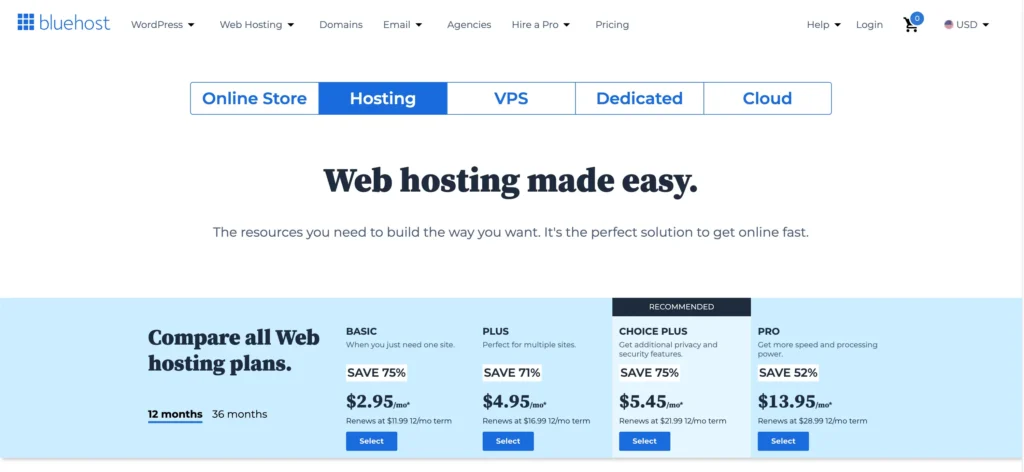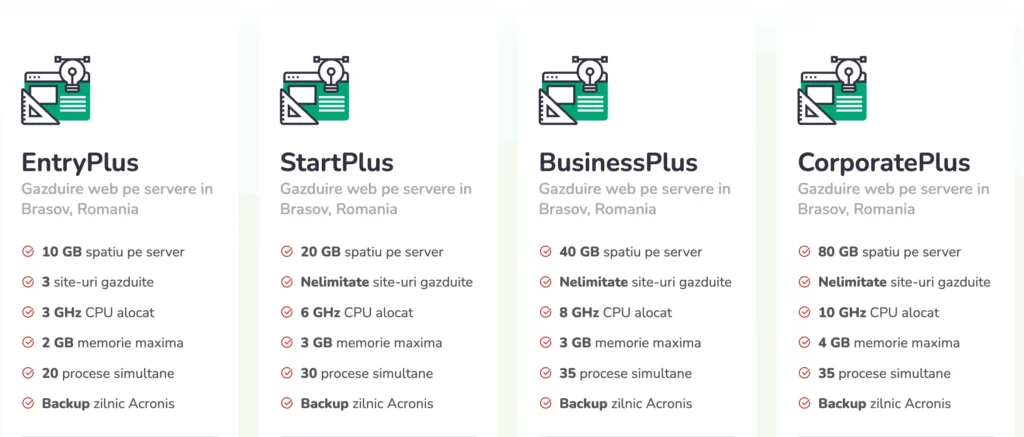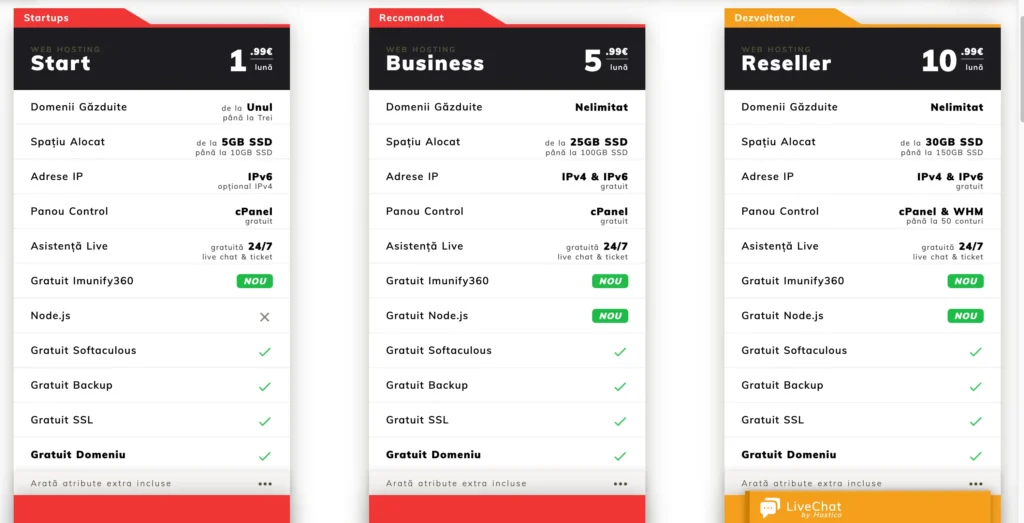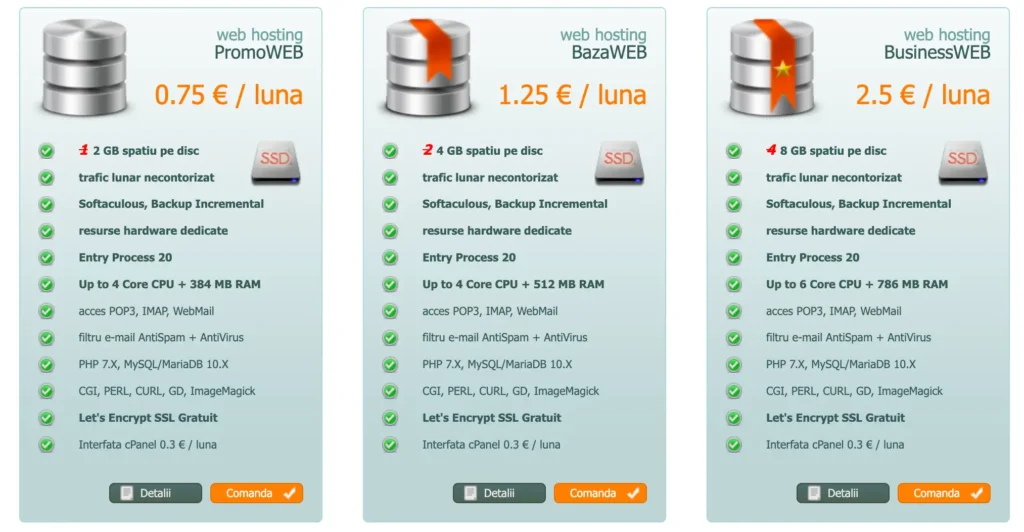Choosing the right hosting service for your business website can feel overwhelming. With so many options out there, how do you know which one will best support your website’s needs? Think of your hosting service as the backbone of your online presence—reliable, supportive, and robust. Just like you wouldn’t settle for less when it comes to your business operations, your website deserves the same level of attention and care. Whether you’re just starting out or looking to upgrade, this article will help you find the perfect hosting service to ensure your site performs at its best and helps your business thrive.
But first: what is a website hosting service?
Web hosting is a service that allows individuals and organizations to post a website or web page onto the Internet. A web host, or hosting provider, is a company that provides the technologies and services needed for websites to be viewed on the web. It’s basically the space that holds all the information visible on your company domain, as well as other important information, such as your email addresses and other connections or software you use.
The key components of a website hosting service are:
- Server Space: Web hosting providers offer space on their servers to store website files, including HTML, CSS, images, and other content.
- Bandwidth: This refers to the amount of data that can be transferred to and from your site. It affects how quickly your website loads and how many users can access it at a time.
- Domain Name: While not always included, many hosting services offer domain registration services or integration, allowing you to link your website with a domain name.
- Email Accounts: Many hosting providers offer email services associated with your domain name, providing a professional appearance.
- Security Features: Web hosting often includes security measures such as SSL certificates, firewalls, and anti-malware protection to safeguard your site and its data.

Understanding different types of hosting services
Shared hosting
Shared hosting is the most basic type of web hosting. It involves sharing server resources with other websites, which makes it a cost-effective option. For small businesses or startups with low traffic volumes, shared hosting can be a great starting point. However, shared hosting has its limitations, especially when it comes to performance and scalability. Since resources are shared, your website’s performance can be affected by other sites on the same server. Additionally, as your business grows and your traffic increases, you may quickly outgrow the capabilities of shared hosting.
VPS hosting
Virtual Private Server (VPS) hosting is a step up from shared hosting. It provides more control and better performance by partitioning a physical server into several virtual servers, each with its own resources. VPS hosting is ideal for growing businesses that need more power and flexibility than shared hosting can offer but aren’t ready for the expense of dedicated hosting. With VPS, you have more control over your server environment, which allows for better customization and optimization of your site.
Dedicated hosting
Dedicated hosting is the most powerful option available. With dedicated hosting, your website is hosted on a server exclusively for your use. This means you have full control over the server and its resources, which can significantly boost your site’s performance, security, and reliability. Dedicated hosting is best suited for large businesses with high traffic volumes or those needing strict compliance and security requirements. However, this level of control comes at a higher cost, and it requires more technical expertise to manage.
Key factors to consider when choosing a hosting service
- Performance and speed – Website speed is crucial for user experience and SEO. Google considers page speed as a ranking factor, which means slow-loading pages can hurt your visibility in search results. When choosing a hosting service, look for one that offers high-performance servers with fast load times. Some hosting providers use content delivery networks (CDNs) and caching technologies to improve speed further, which can be particularly beneficial for WordPress sites.
- Uptime reliability – Uptime refers to the amount of time your website is available and accessible to users. Most hosting providers guarantee a certain level of uptime, usually around 99.9%. However, even a small amount of downtime can have significant consequences for your business, including lost revenue and damage to your brand reputation. Ensure that the hosting provider you choose has a strong track record of uptime reliability and offers an SLA (Service Level Agreement) that guarantees compensation if they fail to meet their uptime promises.
- Security features – Security is a top concern for any business website. A good hosting provider should offer robust security features to protect your site from threats such as malware, hacking, and data breaches. Look for features such as SSL certificates, DDoS protection, firewall management, and regular security audits. Additionally, for WordPress websites, consider hosting services that offer automatic updates and daily backups to minimize the risk of vulnerabilities.
- Scalability– As your business grows, your website needs to scale with it. Scalability is the ability of your hosting service to handle increased traffic and data without compromising performance. Some hosting services offer easy upgrades to higher plans or even automatic scaling during traffic spikes. Cloud hosting services are particularly known for their scalability, as they can allocate more resources on demand.
- Customer support – Reliable customer support is essential, especially if you’re not a tech expert. When issues arise, you’ll want to know that help is available 24/7. Look for hosting providers that offer multiple support channels, including live chat, phone support, and email. It’s also worth checking out customer reviews to see how responsive and helpful their support teams are.
- Cost vs. value – While cost is an important factor, it’s crucial to focus on the value you’re getting for your money. A cheaper hosting plan may save you money upfront, but it could end up costing you more in terms of downtime, slow performance, or security issues. Consider what’s included in the price, such as bandwidth, storage, security features, and customer support, and choose a plan that offers the best value for your business needs.

Special considerations for WordPress websites
When it comes to managing a WordPress website, the hosting service you choose can significantly impact your site’s performance and overall experience. WordPress is a powerful platform, but it has unique needs and characteristics that make it different from other types of websites. From the wide array of plugins and themes to the regular updates and security concerns, WordPress requires a hosting environment that is tailored to its specific demands.
WordPress optimization
WordPress-specific hosting can make a significant difference in your site’s performance and reliability. Managed WordPress hosting is designed to optimize every aspect of your site, from speed and security to backups and updates. These hosting services often include server-level caching, which reduces the load on your WordPress site and ensures faster load times.
Pugin and theme support
Not all hosting providers are created equal when it comes to supporting the wide array of plugins and themes available for WordPress. Some managed WordPress hosts restrict certain plugins that are known to cause performance issues. Before choosing a host, ensure that your preferred plugins and themes are fully supported and optimized.
Automatic backups and updates
One of the significant advantages of managed WordPress hosting is automatic updates and backups. This feature ensures that your WordPress core, plugins, and themes are always up to date, reducing the risk of security vulnerabilities. Regular backups also provide peace of mind, knowing that you can restore your site quickly in case of a mishap.

International hosting providers for WordPress
- Bluehost is a popular choice for hosting, especially for beginners. It’s also officially recommended by WordPress.org and offers a range of plans suitable for different needs. Bluehost’s managed WordPress hosting includes features like automatic updates, free SSL, and 24/7 customer support. It’s an excellent option for small to medium-sized businesses, with prices starting from 2.95$/month.
- Siteground is known for its superior customer support and robust security features. It offers managed WordPress hosting with free daily backups, automatic updates, and a WordPress-specific caching solution called SuperCacher, which significantly improves site speed. SiteGround’s commitment to uptime and performance makes it a favorite among WordPress users. Prices from 2.99$/month.
- Kinsta is another premium managed WordPress hosting provider that leverages Google Cloud’s infrastructure for speed and reliability. Kinsta’s platform is optimized for WordPress, with features like automatic daily backups, uptime monitoring, and a powerful CDN. It’s an excellent choice for businesses looking for top-tier performance and scalability. Prices start from 30 $/month.
Romanian hosting providers
- Romarg offers a range of hosting solutions with prices starting from 2.95 euro/month, combining affordability with performance. Key features:
- Performance: Powerful servers and high uptime guarantee.
- Support: Comprehensive support services, including WordPress optimization.
- Security: Daily backups and malware protection.
- Scalability: Flexible plans that grow with your website.

- Hostico is a well-regarded Romanian hosting provider offering tailored solutions all types of websites. Prices start from 1.99 euro/month. Key features:
- Performance: High-speed SSD storage and optimized server environments for WordPress.
- Support: 24/7 support with expertise in WordPress issues.
- Security: Advanced security protocols, including free SSL certificates.
- Backup: Regular backups and efficient recovery options.

- ClausWeb offers a range of hosting services with a strong emphasis on different types of online shops. The cheapest standard package starts from 0.75 euro/month. Key features:
- Performance: Robust servers and optimized infrastructure for WordPress sites.
- Support: Expert customer support available 24/7 for WordPress-related queries.
- Security: Enhanced security features and regular backups.
- Backup: Automated daily backups and straightforward restore processes.

How to make the final decision
Choosing the right hosting service for your website comes down to understanding your business needs and matching them with the right features. Take into account that typically, hosting services include basic support and security features, but ongoing maintenance is necessary to address issues such as software updates, security patches, performance optimization, and backup management.
Start by assessing your current and future traffic, your budget, and the level of support you need. Consider using a hosting provider that offers a money-back guarantee, so you can test the service without commitment. It’s also a good idea to periodically review your hosting needs as your business grows. What works for a small startup may not be sufficient as your website scales. Keep an eye on your website’s performance, and don’t hesitate to upgrade your hosting plan or switch providers if necessary.







